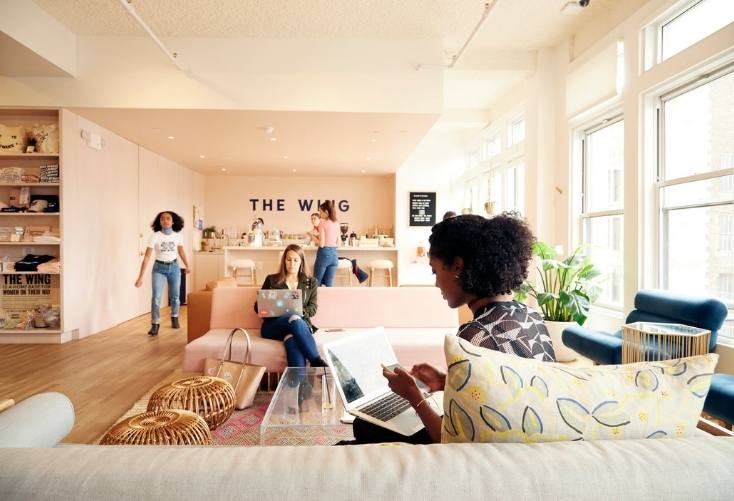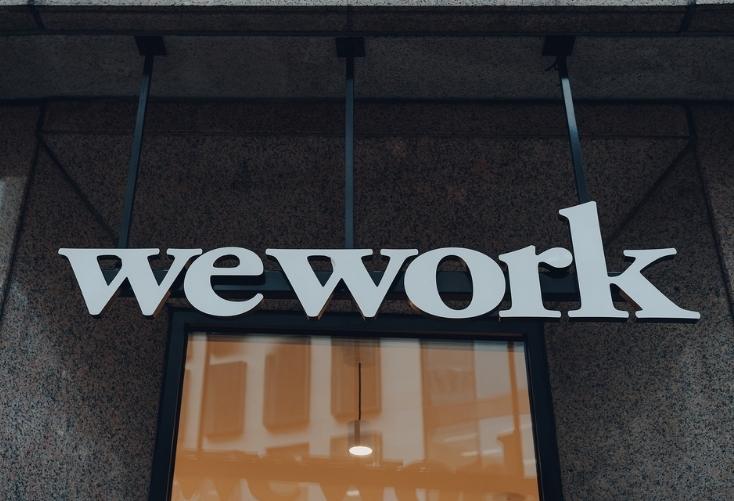Hand selected flexible workspace news from the most reliable sources to keep you ahead of the pack. We find all the latest news, so you don’t have to. Morning and afternoon updates. Stay in the know.
Here’s what you need to know today:
- The Wing To Offer In-person Therapy Sessions For Members
- Coliving Operator Habyt Closes Massive Funding Round
- WeWork Could Face Lawsuit For Vacating Miami Building
- Remote Workers Are Spending More On Housing
- The Future Will Include The Office And Flexibility
- Women Professionals Struggle With High Levels Of Stress
The Wing To Offer In-person Therapy Sessions For Members
The Wing has announced that mental healthcare company The Difference will host on-site therapy sessions and speaker series across the coworking company’s locations.
The company will offer members access to licensed therapists from The Difference as part of its efforts to better support and elevate their members’ companies. Members will have the ability to book an appointment through The Wing’s online portal.
“The Wing was my home away from the home office when I needed energy, inspiration, and community,” said Bea Arthur, CEO and Founder of The Difference. “Talking with so many members about how hard this year was working from home and not connecting with others, it is an honor to be able to provide support for the women I worked next to these last few years, and show the power of therapy at the individual and professional level.”
The Difference will provide members in The Wing’s Los Angeles, New York City and San Francisco locations to an in-person therapy session for one day.

Coliving Operator Habyt Closes Massive Funding Round
Coliving company Habyt has closed a Series B round of funding totaling $24 million as it continues to dominate the EU’s coliving market.
In addition to the funding, Habyt has merged with its competitor Homefully. The company had previously acquired other competitors such as Quarters, Goliving and Erasmo’s Room.
Now, the operator will have over 5,000 units across 15 cities and 6 countries, offering fully-furnished living accommodations as well as a tech-centric experience aimed towards young professionals.
“In spite of less than perfect market conditions we have been able to grow a lot via a very successful M&A strategy that brought us into the position of leaders of our sector in Europe and that still has a lot of potential,” said Luca Bovone, Founder and CEO of Habyt. “We are now looking at strategic targets in Europe, specifically in France and Italy, and also in other continents, especially in Asia.”
Habyt operates on a subscription-based model, where users pay a monthly rent and can move to other Habyt rooms or locations easily.

WeWork Could Face Lawsuit For Vacating Miami Building
Fuse Group Investment is planning to sue WeWork over claims that the coworking company vacated its offices in downtown Miami that violated the terms of its lease.
The 17-story Security Building was acquired by Fuse Group after its previous owner, Security Building AR Owner LLC, foreclosed. Fuse Group resolved the lawsuit against the previous owner by accepting the deed to the property.
The building served as WeWork’s flagship Miami location, having renovated the building with 96,000 square feet of office space and fully leased it out as well.
However, the Fuse Group has now accused the WeWork affiliate that rented out the property for violating its lease, as well as sue WeWork’s parent company for breach of its obligations on the lease.
“They haven’t paid their rent and they are not there,” said Michael Ehrenstein, the attorney who represented Fuse in the initial acquisition. “They removed all of their furniture, so we want an order from the court that we can have possession.”

Remote Workers Are Spending More On Housing
Although remote working is thought to help workers and employers save money, research has shown that permanent remote workers are spending more on larger living arrangements to accommodate their home offices.
This research by Christopher Stanton, the Marvin Bower Associate Professor at Harvard Business School, found that companies who do very little to offer remote workers a housing premium could risk losing top talent.
“You eat into about a third of the savings from reducing office space because of a need to provide money to households to compensate them for home offices or bigger dwellings that make remote work possible or at least easier,” said Stanton.
Companies who have turned to more flexible and hybrid work arrangements are navigating what employee pay will look like for those working remotely. For instance, Facebook said it would adjust its employees’ pay based on the worker’s local area.
The research proposes that employees who are working remotely but living in the same commuting zone of their original office should be offered some of the savings from employers to alleviate housing costs.
“In places where home prices are low and the housing supply is relatively elastic, meaning that you can add more housing somewhat easily, the need to compensate individuals to move to bigger houses is not as extreme,” said Stanton. “But in places with very expensive housing, especially relative to the price of commercial real estate, that need for compensation goes up.”

The Future Will Include The Office And Flexibility
A study from Barco ClickShare has found that 85% of employees want to return to the office at least for part of the time moving forward.
Although the midst of the pandemic led many to predict that the end of the office was near and that remote working would be the future, the reality is more flexible.
However, companies are still unsure of how much space they will need in the future and for how long, which has led many to adopt flexible offices.
Dan Zakai, CEO and co-founder of flexible office firm Mindspace, stated there are two notable reasons why demand for flexible office space is growing: occupiers are looking for leases that are more agile and recognize the benefits of these offices.
“Today, corporates are reluctant to take on long-term commitments, while people are eager to get back to the office in one form or another,” said Zakai. “We’re seeing companies coming back post-Covid, but also new user profiles — businesses that used to think more about the long term and now, with the uncertainty of the work environment in a post-Covid world, have an appetite for flexibility.”
While employees are clearly excited to return to the office, analysis finds that workers prefer a hybrid arrangement. This means that business leaders trying to bring employees back into the workspace need to adopt an experience-first approach to create the best environment possible.

Women Professionals Struggle With High Levels Of Stress
According to a new poll from online healthcare platform 87 percent, working women are experiencing more mental health repercussions of ongoing restrictions than their male counterparts.
The survey of over 5,000 UK workers revealed that the work-life balance of women professionals has been negatively impacted due to juggling caregiving responsibilities. However, half of women that don’t have these types of duties are still seeing higher levels of stress.
For instance, women were 23% more likely to struggle with work-life balance, while 45% were more likely to suffer from work-related stress.
Fatigue and anxiety were found to be at an all-time high, with the research revealing that women are 81% more likely to experience fatigue and 89% more likely to feel anxious on a regular basis.
“Inequality in the workplace is a key driver for poorer health and wellbeing for women and something that we have seen worsen over the course of the pandemic,” said Dr. Jazz Croft, Applied Behavioural Scientist at 87 percent. “Unfortunately, when it comes to mental health, there is no one-size-fits-all approach but employers can close the gender wellbeing gap by having proactive policies that support women, including flexible working policies, access to wellbeing support and the promotion of inclusive work cultures.”




 Dr. Gleb Tsipursky – The Office Whisperer
Dr. Gleb Tsipursky – The Office Whisperer Nirit Cohen – WorkFutures
Nirit Cohen – WorkFutures Angela Howard – Culture Expert
Angela Howard – Culture Expert Drew Jones – Design & Innovation
Drew Jones – Design & Innovation Jonathan Price – CRE & Flex Expert
Jonathan Price – CRE & Flex Expert














